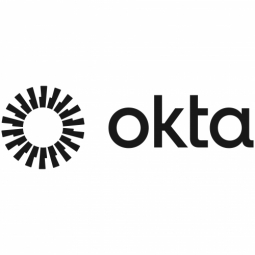Customer Company Size
Large Corporate
Region
- Europe
- America
Country
- Germany
- United States
Product
- Okta Universal Directory
- Okta Single Sign-On (SSO)
- Okta Adaptive Multi-Factor Authentication (MFA)
- Okta Lifecycle Management
- Okta API Access Management
Tech Stack
- Identity and Access Management
- Zero Trust Security
- Cloud-based Identity Solutions
Implementation Scale
- Enterprise-wide Deployment
Impact Metrics
- Customer Satisfaction
- Productivity Improvements
- Cost Savings
- Digital Expertise
Technology Category
- Cybersecurity & Privacy - Identity & Authentication Management
- Application Infrastructure & Middleware - API Integration & Management
Applicable Industries
- Healthcare & Hospitals
- Pharmaceuticals
Applicable Functions
- Business Operation
- Quality Assurance
Services
- System Integration
- Cloud Planning, Design & Implementation Services
- Cybersecurity Services
About The Customer
Merz Group, founded in 1908 in Frankfurt, Germany, is a global enterprise with over 4,000 employees and a presence in 28 countries. The company operates in three main business areas: Merz Aesthetics, Merz Therapeutics, and Merz LifeCare, focusing on helping people 'live better, feel better, and look better.' As a family-owned business, Merz attributes its long-term success to its commitment to innovation and customer-centricity. The company is dedicated to providing well-rounded services and maintaining high security standards for its customers. Merz's digital transformation journey, in partnership with Okta, aims to enhance security, streamline IT services, and improve customer experience.
The Challenge
In 2017, Merz embarked on a digital transformation strategy to improve customer experience and secure medical data. The company faced challenges due to its services being spread across multiple platforms, resulting from acquisitions in different countries. This led to a lack of centralization, creating a burden on the IT team to manage customer identities across various platforms. Customers experienced different interactions with Merz, and the IT team had to ensure data security while working towards a Zero Trust model. The need for a harmonized and optimized IT service was evident to streamline operations and enhance security.
The Solution
Merz partnered with Okta to implement a modernized infrastructure focused on identity and access management as the foundation for its Zero Trust strategy. By choosing Okta, Merz aimed to protect client data and credentials while enabling better access management for its workforce. The company deployed Okta's Universal Directory, Single Sign-On (SSO), Adaptive Multi-Factor Authentication (MFA), Lifecycle Management, and API Access Management to create a seamless customer portal. This allowed customers to access all services through a single portal, reducing the need for multiple accounts and enhancing security with MFA. For employees, Merz utilized Okta's Workforce Identity Cloud products to manage identities centrally, reducing IT support tickets and increasing productivity. The integration of over 200 apps via the Okta Integration Network further streamlined operations, automating identity-centric processes and reducing maintenance costs.
Operational Impact
Quantitative Benefit

Case Study missing?
Start adding your own!
Register with your work email and create a new case study profile for your business.
Related Case Studies.

Case Study
Case Study: Pfizer
Pfizer’s high-performance computing software and systems for worldwide research and development support large-scale data analysis, research projects, clinical analytics, and modeling. Pfizer’s computing services are used across the spectrum of research and development efforts, from the deep biological understanding of disease to the design of safe, efficacious therapeutic agents.

Case Study
Hospital Inventory Management
The hospital supply chain team is responsible for ensuring that the right medical supplies are readily available to clinicians when and where needed, and to do so in the most efficient manner possible. However, many of the systems and processes in use at the cancer center for supply chain management were not best suited to support these goals. Barcoding technology, a commonly used method for inventory management of medical supplies, is labor intensive, time consuming, does not provide real-time visibility into inventory levels and can be prone to error. Consequently, the lack of accurate and real-time visibility into inventory levels across multiple supply rooms in multiple hospital facilities creates additional inefficiency in the system causing over-ordering, hoarding, and wasted supplies. Other sources of waste and cost were also identified as candidates for improvement. Existing systems and processes did not provide adequate security for high-cost inventory within the hospital, which was another driver of cost. A lack of visibility into expiration dates for supplies resulted in supplies being wasted due to past expiry dates. Storage of supplies was also a key consideration given the location of the cancer center’s facilities in a dense urban setting, where space is always at a premium. In order to address the challenges outlined above, the hospital sought a solution that would provide real-time inventory information with high levels of accuracy, reduce the level of manual effort required and enable data driven decision making to ensure that the right supplies were readily available to clinicians in the right location at the right time.

Case Study
Gas Pipeline Monitoring System for Hospitals
This system integrator focuses on providing centralized gas pipeline monitoring systems for hospitals. The service they provide makes it possible for hospitals to reduce both maintenance and labor costs. Since hospitals may not have an existing network suitable for this type of system, GPRS communication provides an easy and ready-to-use solution for remote, distributed monitoring systems System Requirements - GPRS communication - Seamless connection with SCADA software - Simple, front-end control capability - Expandable I/O channels - Combine AI, DI, and DO channels

Case Study
Driving Digital Transformations for Vitro Diagnostic Medical Devices
Diagnostic devices play a vital role in helping to improve healthcare delivery. In fact, an estimated 60 percent of the world’s medical decisions are made with support from in vitrodiagnostics (IVD) solutions, such as those provided by Roche Diagnostics, an industry leader. As the demand for medical diagnostic services grows rapidly in hospitals and clinics across China, so does the market for IVD solutions. In addition, the typically high cost of these diagnostic devices means that comprehensive post-sales services are needed. Wanteed to improve three portions of thr IVD:1. Remotely monitor and manage IVD devices as fixed assets.2. Optimizing device availability with predictive maintenance.3. Recommending the best IVD solution for a customer’s needs.

Case Study
Fusion Middleware Integration on Cloud for Pharma Major
Customer wanted a real-time, seamless, cloud based integration between the existing on premise and cloud based application using SOA technology on Oracle Fusion Middleware Platform, a Contingent Worker Solution to collect, track, manage and report information for on-boarding, maintenance and off-boarding of contingent workers using a streamlined and Integrated business process, and streamlining of integration to the back-end systems and multiple SaaS applications.








